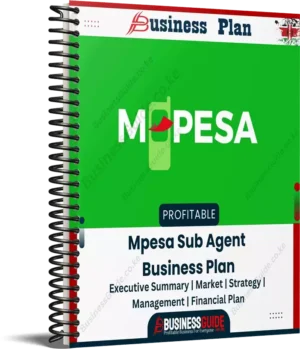Kickstart Your Fashion Business with Our Comprehensive Business Plan PDF for Kenya!
Are you ready to make your mark in the vibrant world of fashion? Our Fashion Business Plan PDF – Kenya is crafted to help aspiring entrepreneurs launch and grow a successful fashion business tailored to the unique Kenyan market.
Why Choose Our Business Plan?
Comprehensive and Customized: This business plan provides valuable insights and strategies specifically designed for the fashion industry in Kenya, ensuring your business stands out.
What You Will Learn: Our plan includes crucial components such as:
- Market Analysis: In-depth research on fashion trends, consumer behavior, and the competitive landscape in Kenya.
- Business Model Overview: Guidance on selecting the right business model, whether retail, e-commerce, or a combination.
- Operational Framework: Step-by-step processes covering supply chain management, inventory control, and staffing.
- Marketing Strategies: Proven techniques for brand positioning, promoting your collections, and engaging with customers.
What’s Included in the Business Plan?
- Executive Summary: A clear overview of your fashion business concept, mission, and strategic objectives.
- Industry Overview: An analysis of the Kenyan fashion market, highlighting opportunities and challenges.
- Product Line and Services: Detailed descriptions of the fashion items or services you will provide and their unique selling propositions.
- Financial Projections: Comprehensive financial forecasts, including start-up costs, pricing strategies, and revenue expectations.
- Risk Management: Strategies to identify and mitigate potential risks associated with the fashion business.
Your Fashion Journey Begins Here: The Fashion Business Plan PDF – Kenya is your indispensable guide for launching and managing a successful fashion venture!
Download Now! Get immediate access to our Fashion Business Plan PDF – Kenya and take the first step toward fashion entrepreneurship today!
You can start a clothing line, accessories brand, boutique, or an online fashion store.
Analyze fashion trends, study competitors, and gather insights from potential customers through surveys.
Startup costs may include material sourcing, production, marketing, and overhead expenses.
Utilize social media, collaborate with influencers, attend fashion events, and leverage email marketing.
Ensure compliance with business registration, intellectual property laws, and health regulations.
Attend trade shows, search online directories, and build relationships with local manufacturers.
Focus on sustainability, cultural influences, and current consumer preferences in styles and materials.
Consider production costs, competitor pricing, and perceived value to set competitive prices.
Look into small business loans, crowdfunding, grants, or angel investors specific to the fashion industry.
A business plan outlines your strategy, helps secure funding, and provides direction for your business operations.






